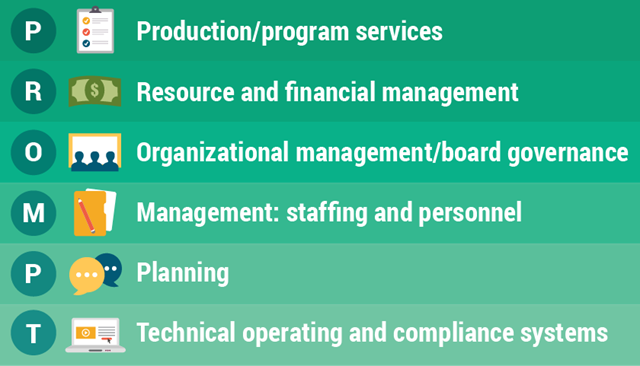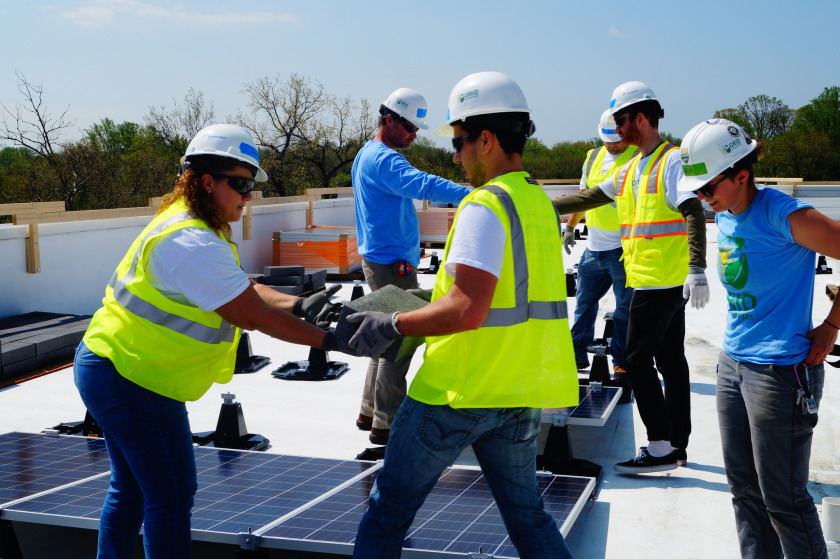The regular, thorough organizational assessments required of all nonprofits wanting to become and stay members of the NeighborWorks network is daunting. There is no denying it: The process requires significant staff time and is both demanding and rigorous. But it is a compelling point of differentiation for funders and policymakers, and many organizations have discovered a variety of internal benefits that have made them champions of the requirement.
“While members of Congress appreciate the amazing work done by NeighborWorks organizations to support their constituents, the austere budget environment has caused them to be laser-focused on the stewardship of all grant funding,” notes Andy Blomme, senior director of legislative affairs for NeighborWorks America—which, as a Congressionally chartered nonprofit receives a federal appropriation. “Fortunately, because NeighborWorks organizations are regularly and rigorously evaluated and assessed, membership in our network inspires confidence not just among members of Congress and their staff, but also at the state and local level.”
To be accepted as a member of the NeighborWorks network, an organization is visited on site by a nonprofit-management expert who conducts what is called a PROMPT review.

(The same service is offered for a fee to nonmember organizations.) This onsite review is repeated every three years, with an annual, offsite performance assessment in between. Any organization found to be vulnerable is assisted with an action plan (and eventually transitioned out of the network if serious weaknesses are not corrected).
The purpose of the reviews, says Kevin Morris, senior vice president of NeighborWorks’ Organizational Assessment Division, is to objectively evaluate a nonprofit’s health, turning raw data into knowledge that accurately identifies risk and guides management decision making as it seeks to improve performance.”
Here are the stories of a few of the organizations that are veterans of the review process and can testify to the benefits that come along with the hard work.
Neighborhood Housing Services of New Britain
John Kukulka, executive director of Neighborhood Housing Services of New Britain, Connecticut, recalls the NeighborWorks assessment of his organization last year as being particularly beneficial for several reasons. After heading the nonprofit’s real estate team, he was appointed its executive director in 2016, and the process—which included a board self-assessment—was an ideal way to thoroughly orient him to the wider scope of his new job.“We also had a strategic plan that was aged out by about a year, and the next generation was languishing in a board subcommittee,” recalls Kukulka. “The board president had vacated his position and there was so much going on, it just wasn’t a priority—that is, until the assessment began. The process helped me refocus the board and we got it done.”
According to Kukulka, the improvements the nonprofit has made and the “seal of approval” it can show as a result of the assessment directly helped the organization win $45,000 grants from two local foundations within a month after making a pitch.
His advice to other organizations who want their assessment to go smoothly? “Work closely with your local relationship manager. He or she knows what NeighborWorks is looking for, and will help you get through the process. It can be a lot of work. But more often than not, it’s also really beneficial.”
St. Ambrose Housing Aid Center

“It was a very challenging period,” recalls Joab. “Many of our production and profitability numbers went down as a result, so having a good, open relationship with the NeighborWorks organizational assessment and rental teams was critical. And while it was challenging to manage through a review while all this was going on, the consultants that the assessment financed for us were invaluable. They helped us review our entire rental portfolio, identify the priority areas and draft a preservation and expansion plan.”
With the help of the review process, St. Ambrose developed a preservation and expansion plan that will recapitalize all its existing rental homes and increase its portfolio by 400 units to ensure sustainability. That work will take five years or so to complete.
Casa of Oregon
Casa has had the unique experience of being reviewed first as a nonmember in 2015, and then as a new NeighborWorks network affiliate.“In 2015, we wanted an external assessment of our performance, and NeighborWorks America was the natural place to turn,” recalls Peter Hainley, CEO of Casa of Oregon. “Its approach is methodical and a very good exercise for our board.”
Casa came out of that assessment with 32 recommendations for action. Then, it applied for inclusion in the NeighborWorks network, and as part of that process, participated in another review in February 2017. This time, only 10 recommendations were identified.
“Every time, it’s beneficial,” says Hainley. “This time, for instance, a focus was integrating our strategic, resource and annual work plans, as well as building human resources and communications capacity in-house. Having this kind of external assessments helps make the case to the board and to justify new allocations of resources.”
The key, he adds, is to plan ahead for the assessment, educating staff on the opportunities for insight above and beyond the initial “pain” of the work involved. In addition, make sure the board is informed early on about the process, not just when the report comes out.
Chattanooga Neighborhood Enterprise
Martina Guilfoil came to Chattanooga Neighborhood Enterprise in Tennessee as executive director when the organization was still struggling with the aftermath of the housing crisis, leaving a lot of its projects with weak balance sheets. However, support for its work remained strong among city officials and the two major local foundations.One of the aspects of the assessment process Guilfoil found most beneficial was “being forced to explain and justify what we do. You often don’t stop to analyze our rationale for activities, and this process demands you take time to do that.”

